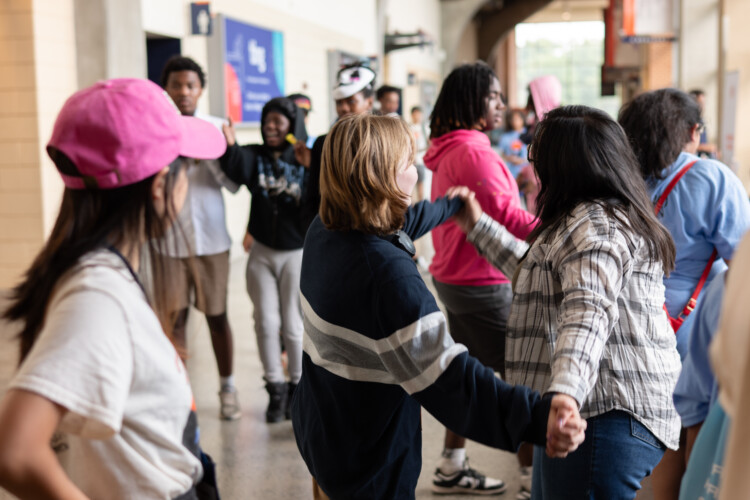The William T. Grant Foundation is very pleased to announce the finalists for its new grant program, the Institutional Challenge Grant. Launched in March of 2017, the Institutional Challenge Grant encourages research institutions to build long-term research-practice partnerships with public agencies or nonprofit organizations in order to reduce inequality in youth outcomes. The new program aims to bring research, policy, and practice communities together in ways that advance the use of research evidence and reduce inequality in youth outcomes.
This year’s program was very competitive, with three finalists selected from a pool of 41 applications after a rigorous review by Foundation staff and a selection committee. “The Foundation received an exciting group of applications from a range of research-practice partnerships that proposed compelling research agendas and innovative institutional shifts,” said Kim DuMont. “This made it difficult for the selection committee to narrow the pool of applications to three finalists.”
Although research institutions are producing a great deal of high-quality, rigorous research, much of it is shaped by the traditional values of the academy, and it speaks most clearly to the research community. Consequently, policymakers and practitioners don’t always find that it is relevant to their work. “The program has the potential to establish the values, relationships, and capacity needed to address stubborn gaps between research, policy, and practice,” said DuMont. To do so, research institutions will need to shift their policies and practices to value collaborative research.
The winning partnership will be announced in March 2018. This announcement will include details about the partnership’s research agenda to reduce inequality, as well as the research institution’s proposed changes in policies and practices to ensure a robust and sustained partnership. The selected institution will receive $650,000 over three years, with the opportunity to apply for a two-year continuation grant to solidify the partnership and institutional changes. The Institutional Challenge Grant is aligned with the Foundation’s long-standing commitment to connect research, policy, and practice.
The 2018 Challenge Grant finalists are:
Rachel Dunifon, Cornell University
Protecting Vulnerable Families and Children in the Crosshairs of the Opioid Epidemic: A Research-Practice Partnership
Working in partnership, the Cornell Cooperative Extension of Tompkins County and Cornell University will conduct and use research to reduce the collateral consequences of the opioid epidemic in low-income rural communities.
Kirk Dombrowski, University of Nebraska-Lincoln
H3C & UNL: Impacting Minority Youth in Rural Nebraska
Working in partnership, Hall County Community Collaborative (H3C) in Grand Island and the University of Nebraska-Lincoln’s Minority Health Disparities Initiative will conduct and use research to reduce inequality in stress, health, and economic outcomes for youth of color and immigrant youth.
Jesse Rothstein, University of California, Berkeley
Using Administrative Data to Advance Racial Equity in Social Service Delivery in California
Working in partnership, the California Department of Social Services and the California Policy Lab at the University of California, Berkeley will conduct and use research to improve the ability of the state’s safety net programs to serve vulnerable youth, with a particular emphasis on advancing equity in the receipt and impact of social services among youth of color and immigrant youth.

